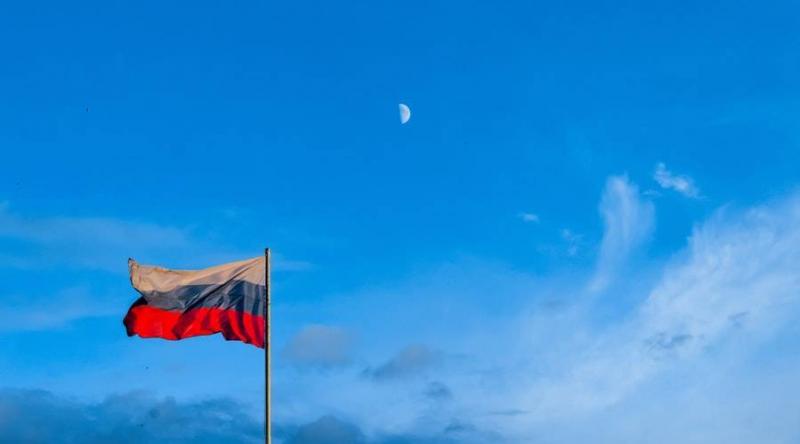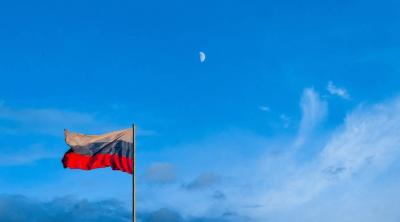In a new escalation with the West, Russia announced its intention to export food and crops only to "friendly countries," which will be sold in rubles or the currencies of those countries. Analysts consider this a new weapon that will severely impact Europe, the largest importer of Russian agricultural products. Dmitry Medvedev, the Deputy Chairman of the Russian Security Council, stated on Sunday, "We will only supply food and agricultural products to our friends... Fortunately, we have many of them, and they are not in Europe or North America at all." Medvedev emphasized that the priority for food supplies will be the domestic market and controlling prices, noting that agricultural supplies to friends will be in rubles or in their national currencies at agreed-upon rates.
These statements from Medvedev come after Moscow recently demanded that foreign buyers pay for Russian gas in rubles in response to the freezing of Russia's assets in the West due to its attack on Ukraine.
**Africa as Russia's Alternative Destination**
Keith Buifield, a fellow at the Institute of Economic Affairs in London, stated that Russia has begun to use its weapons sequentially against the West, starting with energy and then agricultural products, in response to the economic sanctions imposed on it since the outbreak of the war in Ukraine. Buifield noted in statements to "Sky News Arabia": "However, if it (Russia) implements its decision, it needs to find new markets quickly to provide income resources, as it is under sanctions in Europe and the United States." He continued, "We will see a campaign to supply countries like Syria and Lebanon, which are in dire need of grain and have not criticized the Russian attack. Half of Africa remained neutral regarding the war, so I expect to see a large Russian sales campaign to Africa." He pointed out that "it is possible that, as it did with gas, it will sell it at discounted prices to attract new customers in Africa and the Middle East."
**List of Unfriendly Countries**
On March 7, the Russian government announced a list of "unfriendly countries," which includes "countries that imposed or joined the sanctions" against Russia due to the war in Ukraine. The list includes: the United States, Canada, EU countries, the UK, Ukraine, Montenegro, Switzerland, Albania, Andorra, Iceland, Liechtenstein, Monaco, Norway, San Marino, North Macedonia, Japan, South Korea, Australia, Micronesia, New Zealand, Singapore, and Taiwan, with no Arab or African countries included on the list.
According to "The New York Times," an "imminent catastrophe" threatening the world is represented by the shortage of essential foodstuffs, as the war has impacted grain and major crop exports from both countries, which are key sources. The newspaper noted that a significant portion of the world's wheat, corn, and barley is trapped in Russia and Ukraine due to the war, while a larger quantity of global fertilizers is stuck in Russia and Belarus. The result is rising global food and fertilizer prices. The United Nations warned that the war in Ukraine threatens to undermine efforts to supply food to about 125 million people worldwide, as Ukraine has shifted "from the breadbasket of the world to a country where its citizens stand in line for bread."
**Russian Agricultural Exports**
The value of agricultural product exports from Russia in 2021 reached $37.7 billion, according to data from the "Agroexport" center affiliated with the Russian Ministry of Agriculture. Thus, these exports increased by $7.2 billion in 2021 compared to 2020, when agricultural product exports amounted to $30.5 billion. Cereal crops represented the largest share of total agricultural exports, with $11.441 billion in grain exports, marking a 12% increase in 2021 compared to 2020.
According to the data, the European Union was the largest importer of Russian agricultural products, with EU countries purchasing agricultural products from Russia in 2021 worth $4.716 billion, a 41% increase from 2020.
**Wheat More Than a Weapon**
Following the EU, Turkey was the second-largest importer, importing agricultural products from Russia worth $4.33 billion (a 38% increase in 2021 compared to 2020), while China came in third, with imports of Russian agricultural products worth $3.554 billion. Notably, the value of agricultural product exports exceeded the value of Russian arms exports by approximately 1.5 times, as data indicates that Russian arms and military equipment exports averaged around $13 billion.




